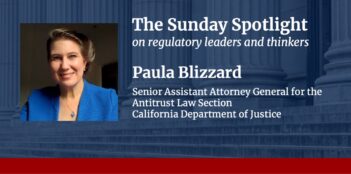
Report finds consumer harm in rise of pay-for-delay agreements.
The Federal Trade Commission (FTC) recently released its annual report on pay-for-delay agreements. Under the Medicare Prescription Drug and Modernization Act of 2003 (MMA), pharmaceutical companies must notify the FTC of such agreements, and the agency must report on them. The FTC argues that these agreements violate the antitrust laws because they restrict competition and increase drug prices.
Pharmaceutical companies use pay-for-delay agreements to settle patent litigation; a company holding a patent for a branded drug will pay to delay the entrance of generic versions of the drug into the market.
According to this year’s MMA report, there were sixty percent more pay-for-delay agreements – thirty-one compared to nineteen – from October 2009 to September 2010 than in the previous year.
Twenty-six of this past year’s thirty-one pay-for-delay agreements involved generic drug companies that had been the first company to request Food and Drug Administration (FDA) approval to market the relevant generic drug. Under FDA rules, the first such filer gets generic market exclusivity for 180 days after it launches its drug. If that first filer agrees with a branded company to delay its entry, then the 180-day period begins running later. Because first filers’ pay-for-delay agreements thereby prevent any relevant generic drugs from launching, the FTC finds them particularly problematic.
As with healthcare reform generally, pay-for-delay agreements ignite strong arguments. FTC Chairman Jon Leibowitz said, upon release of the MMA report, that “[c]ollusive deals to keep generics off the market are already costing consumers and taxpayers $3.5 billion a year in higher drug prices. The increasing number of these deals is a win-win proposition for the pharmaceutical industry, but a lose-lose for everyone else.”
The Generic Pharmaceutical Association (GPhA), a trade group, responded that the FTC’s position that pay-for-delay agreements harmed consumers was “unsubstantiated” and lacked Congressional and judicial support.
Several courts have actually found that pay-for-delay agreements are not anticompetitive. The main basis for their decisions has been that these agreements allow generic entry prior to the expiration of the patent at issue, and therefore do not go beyond the patent’s scope. If the branded company had prevailed in the litigation, generic entry would have been blocked for at least as long.
The Supreme Court has not provided guidance on pay-for-delay agreements. Indeed, in March, the Court declined to hear a case in which several drug store chains alleged that Bayer had paid Barr Laboratories to delay entry of a generic version of Cipro, a commonly used antibiotic.




